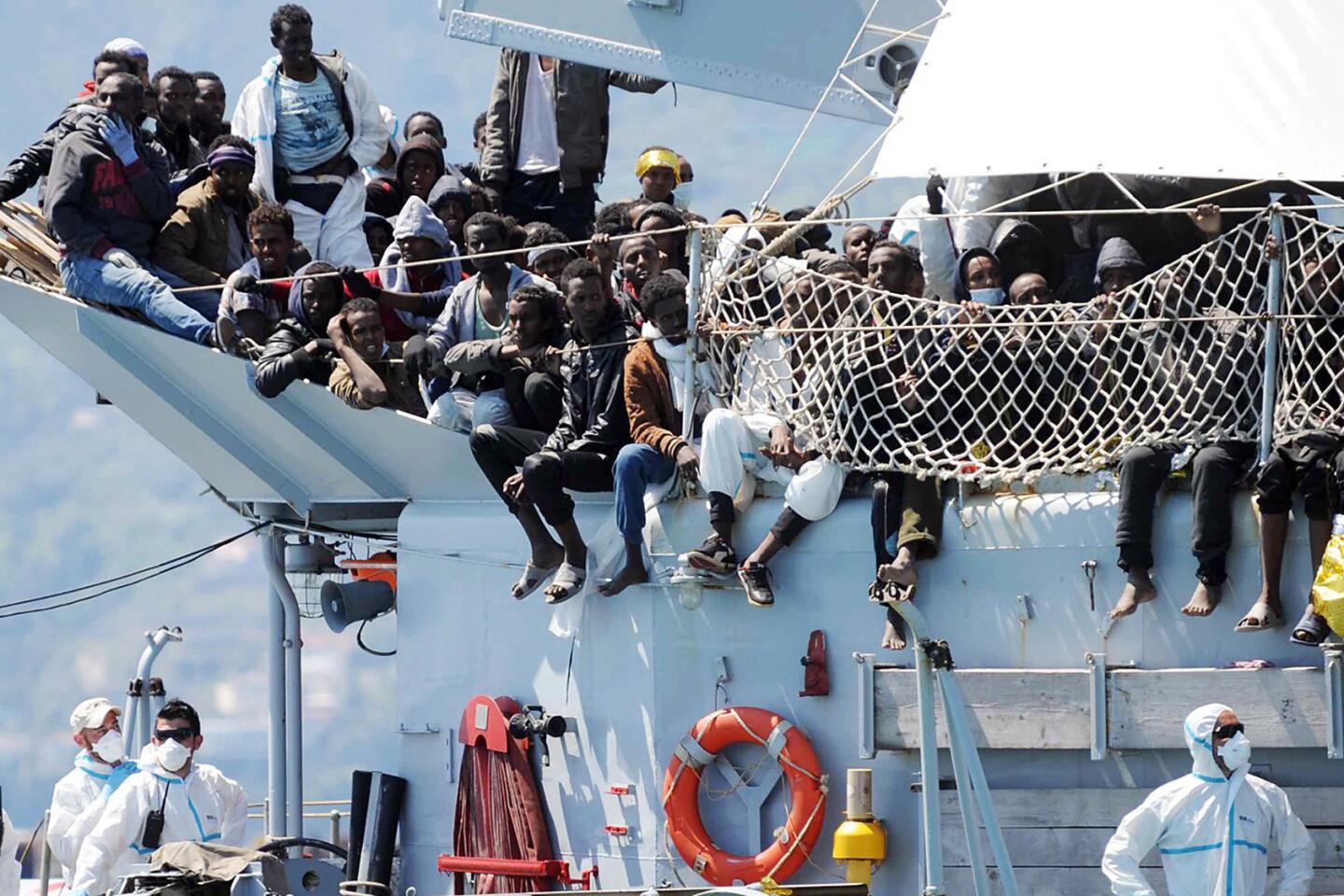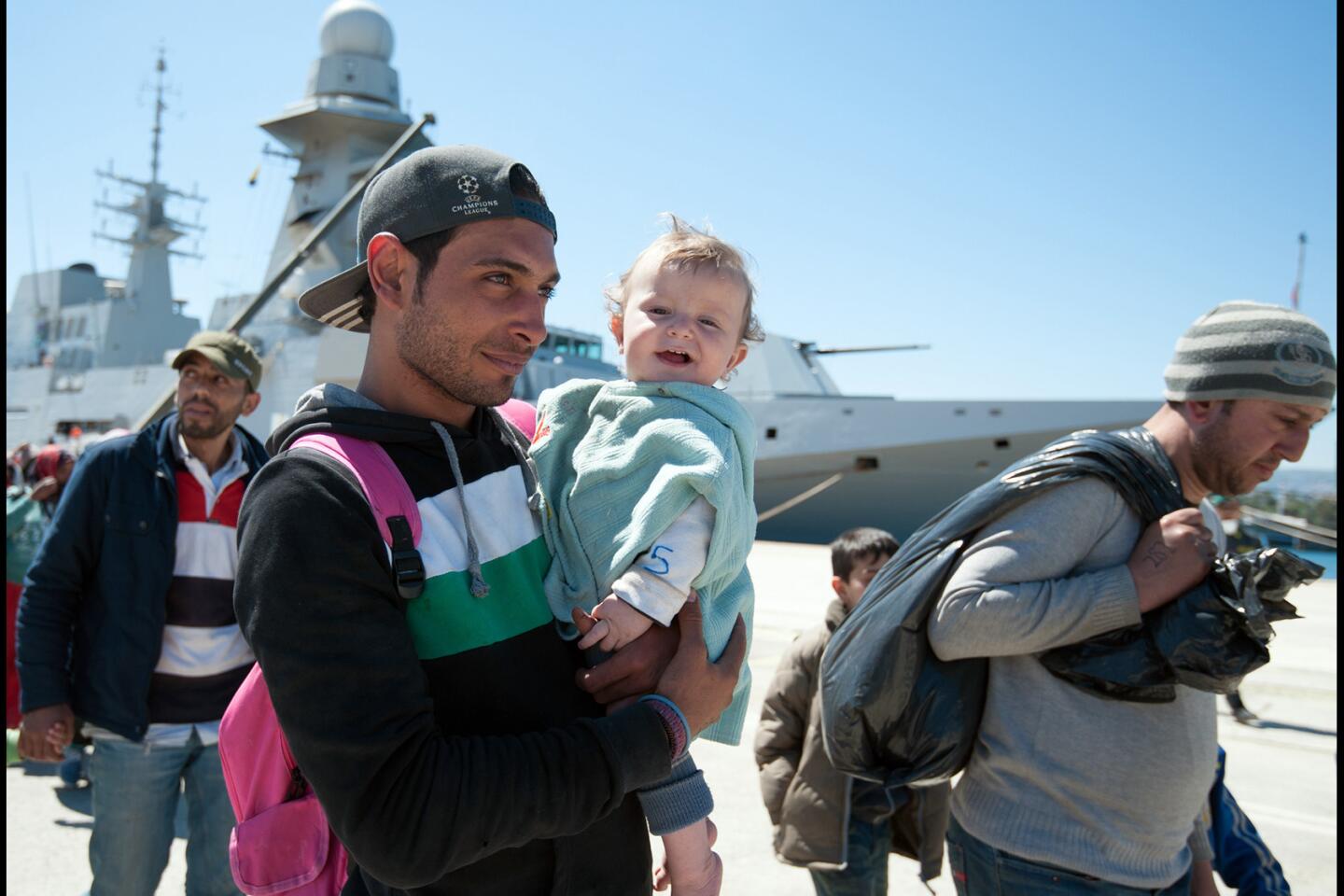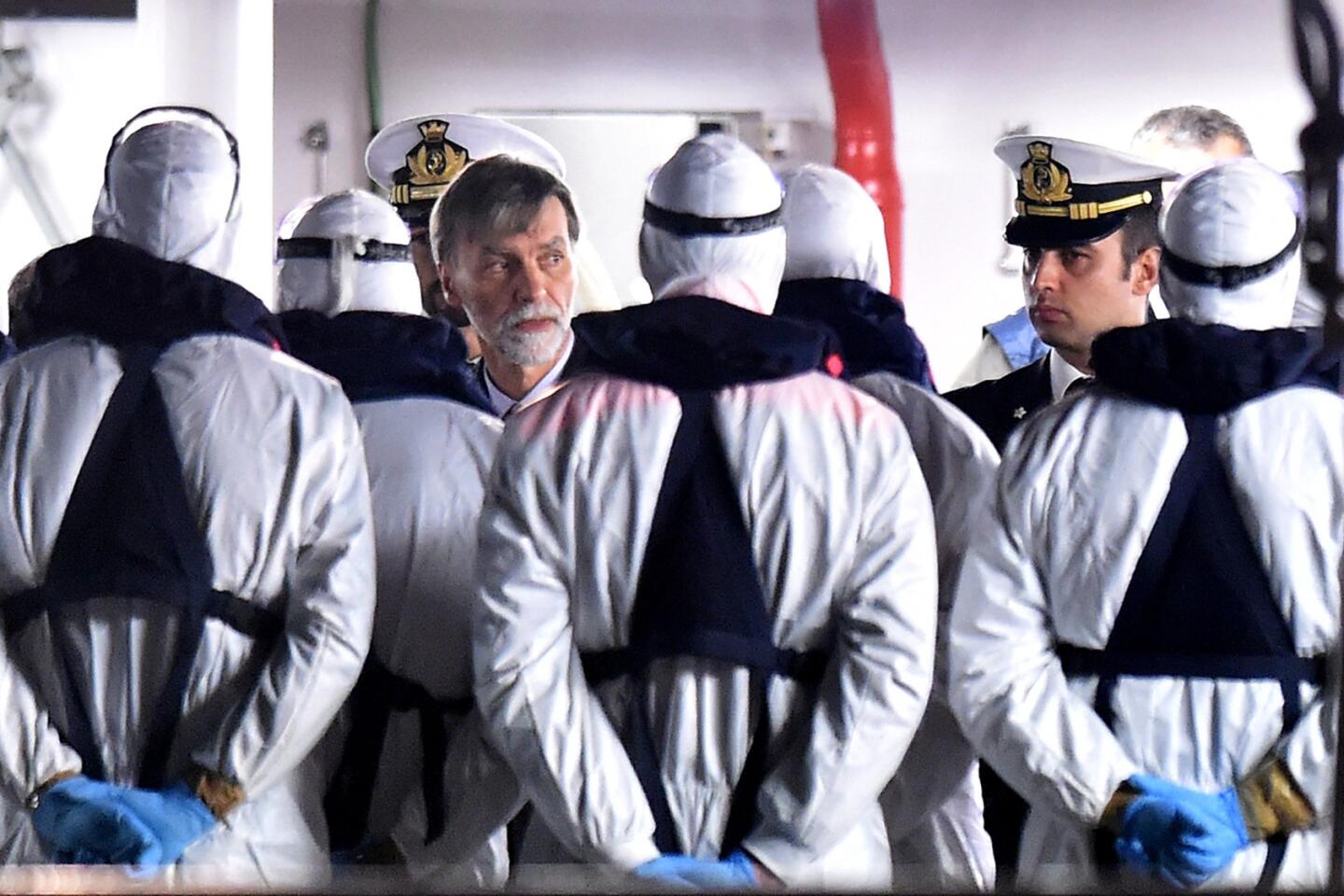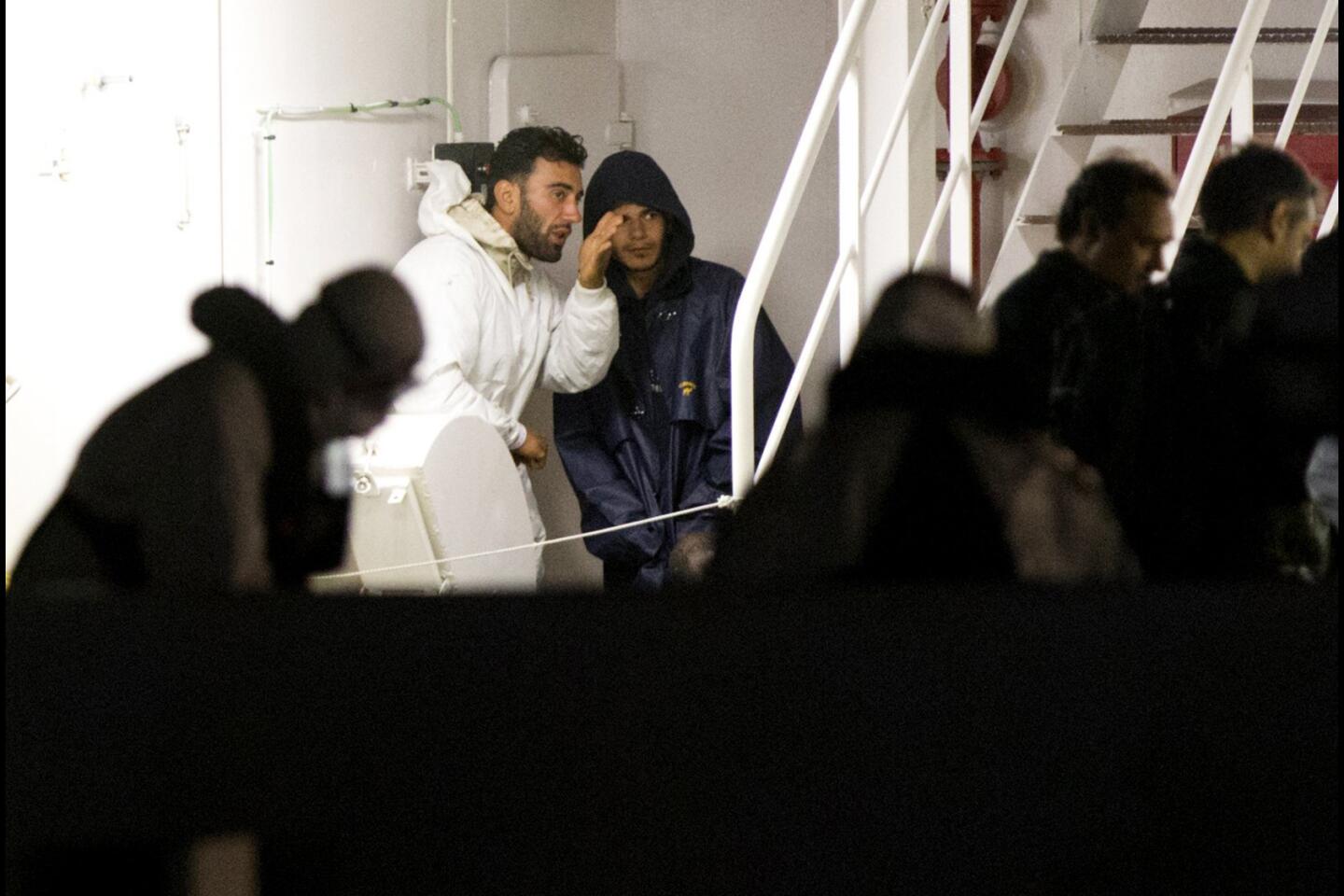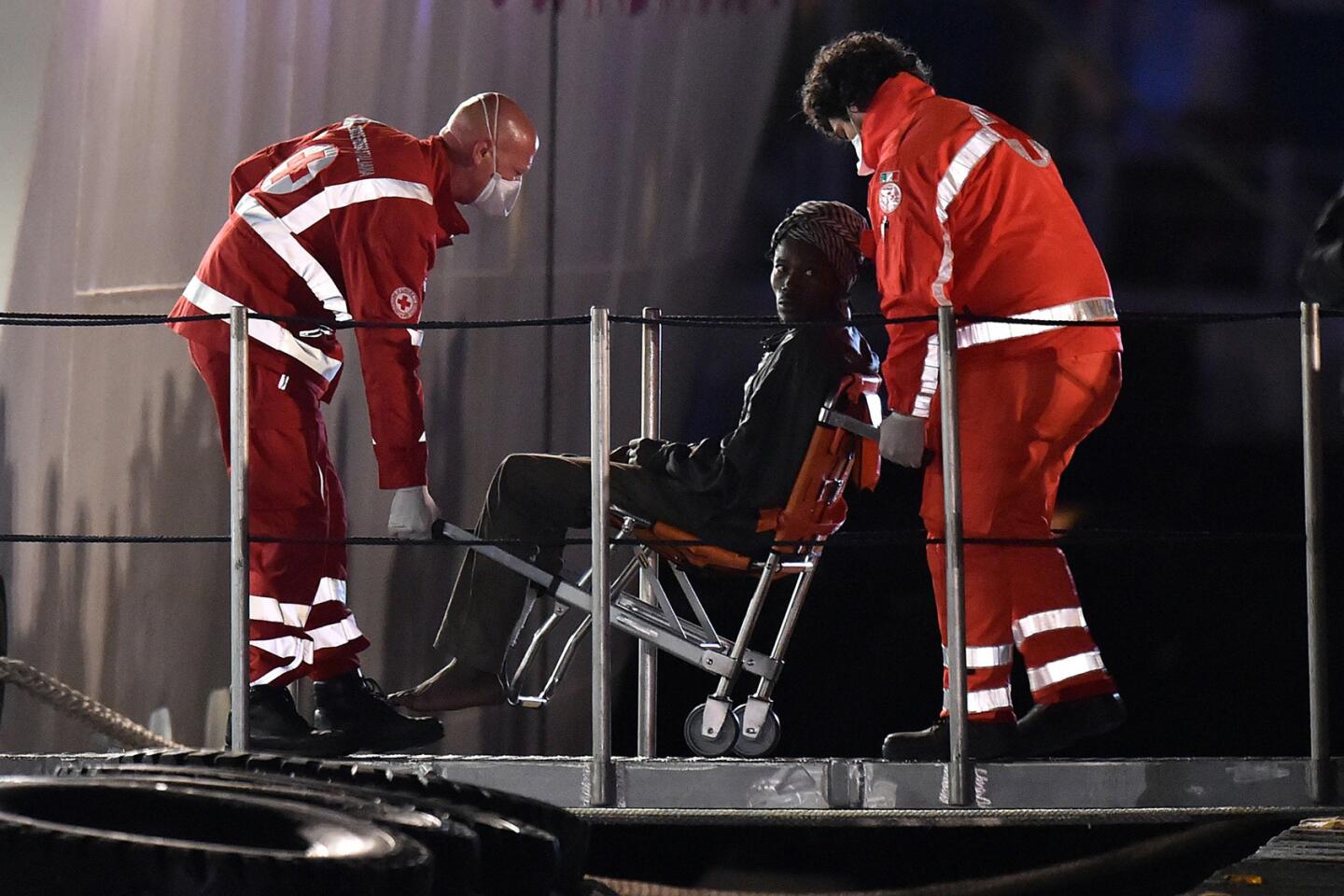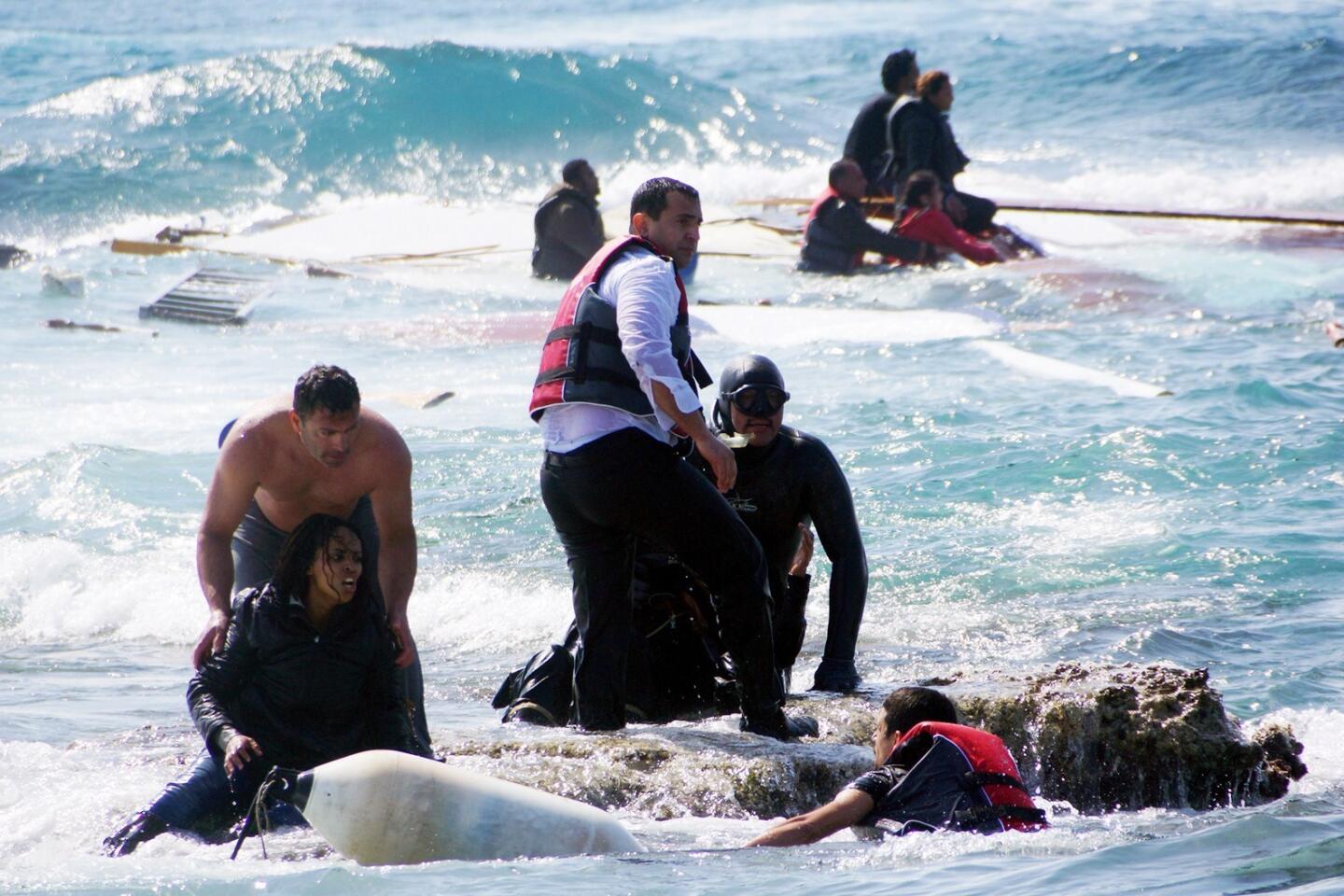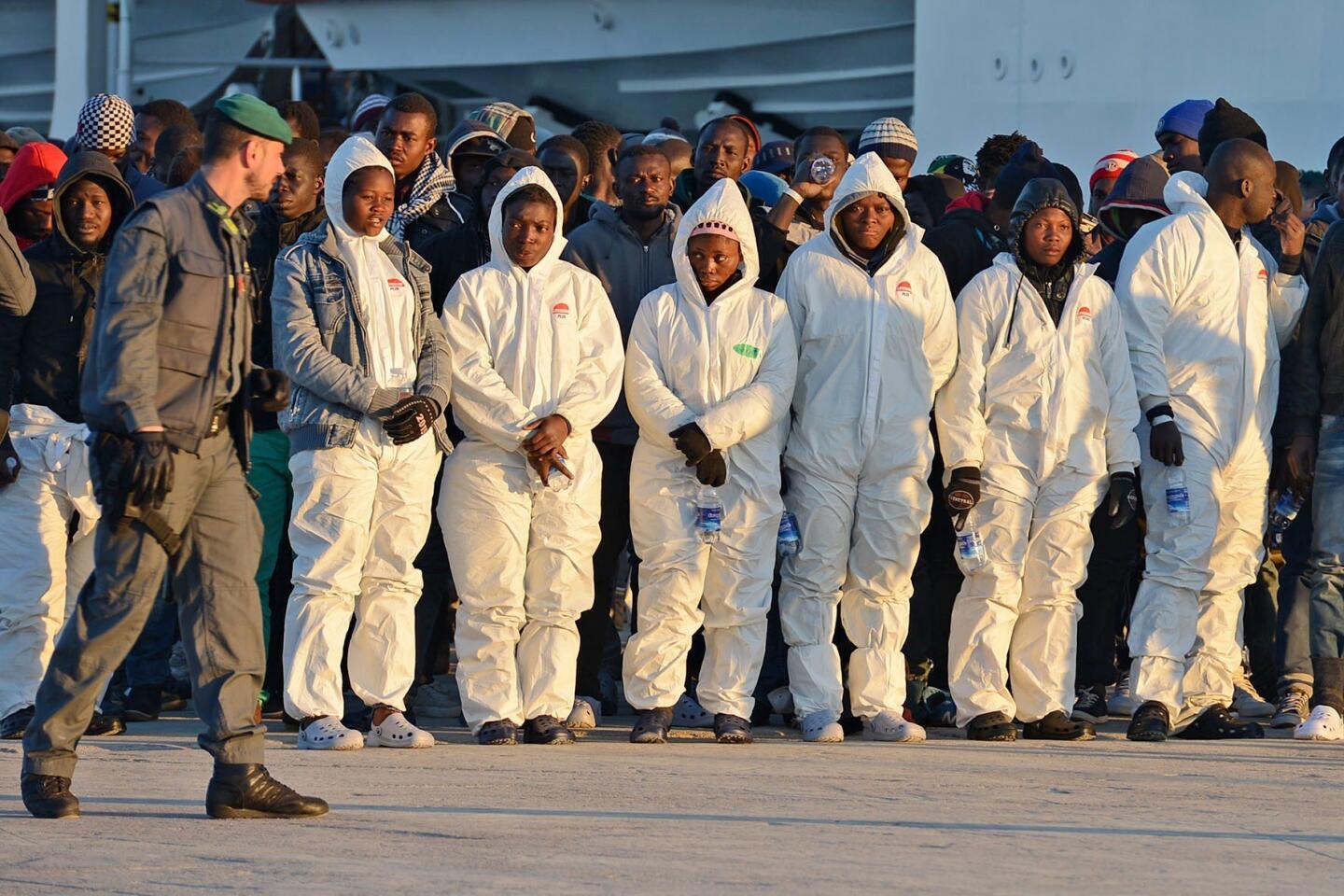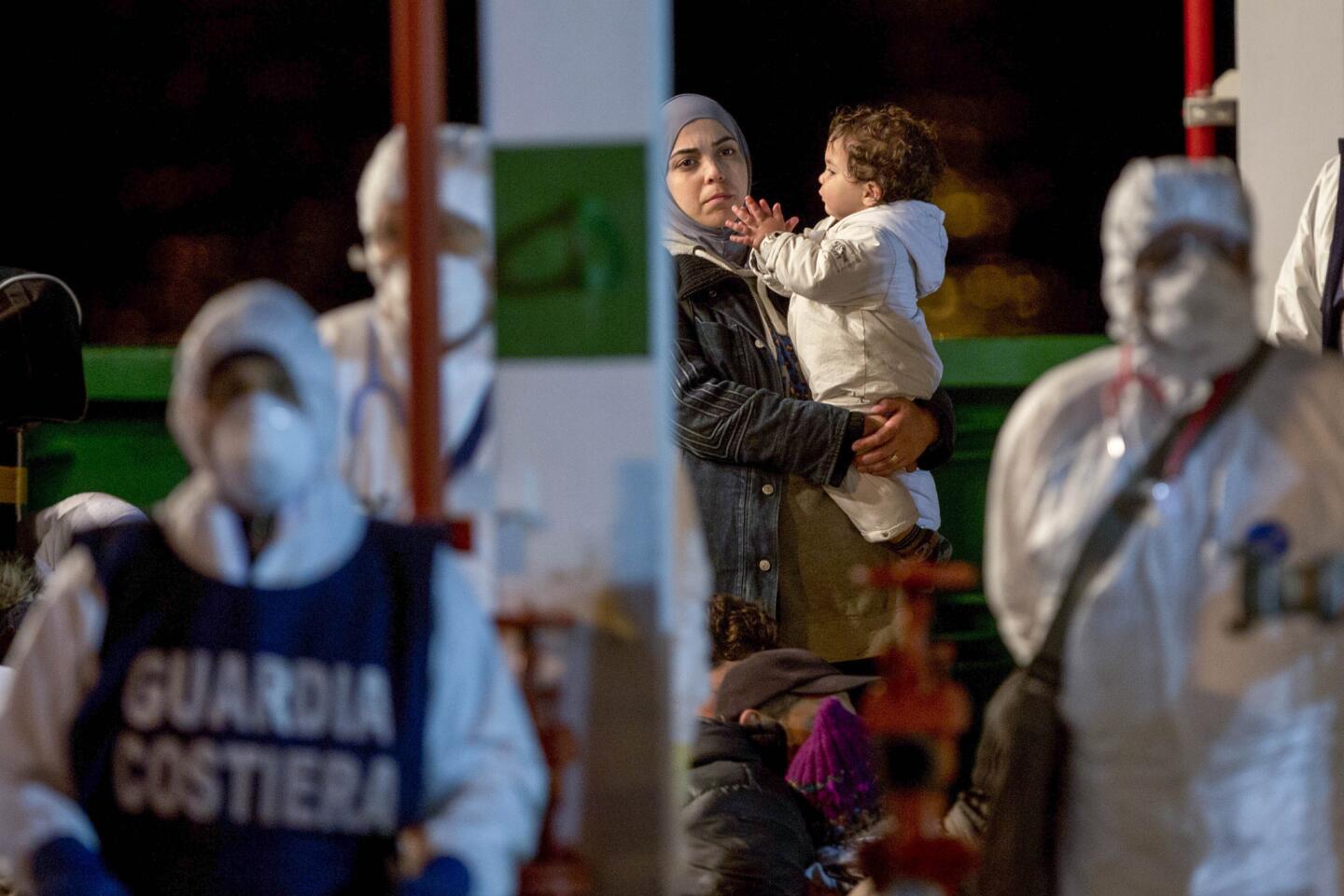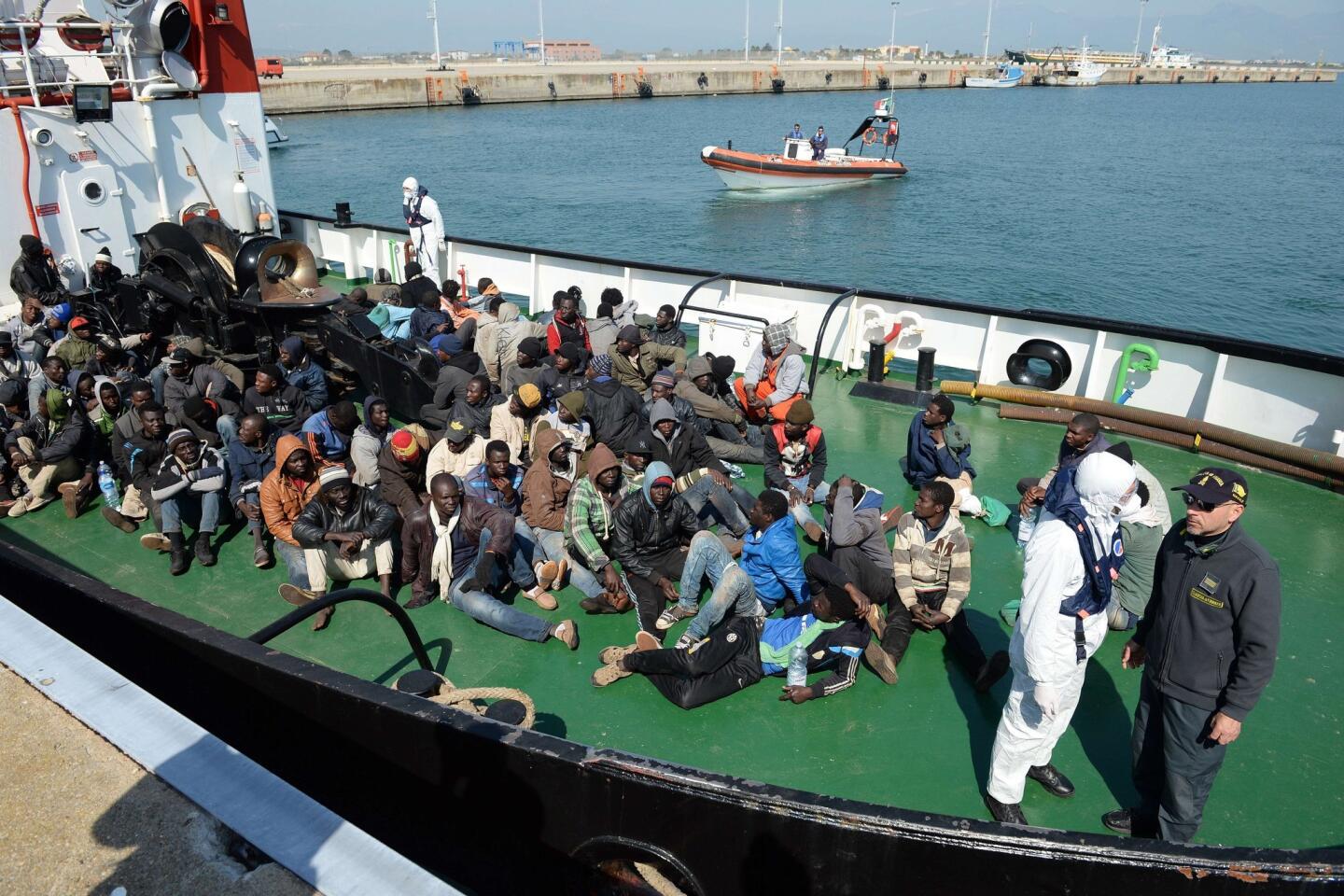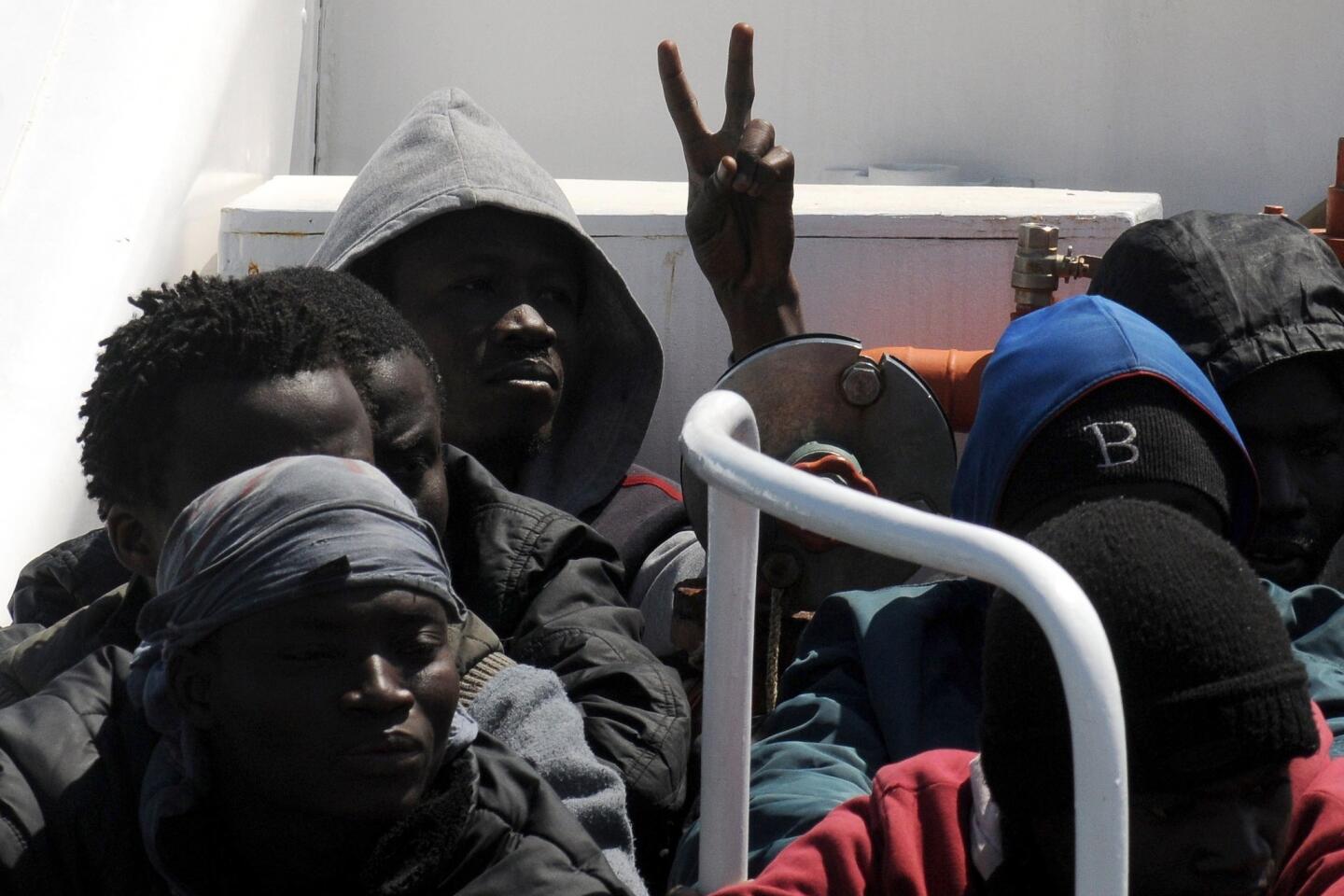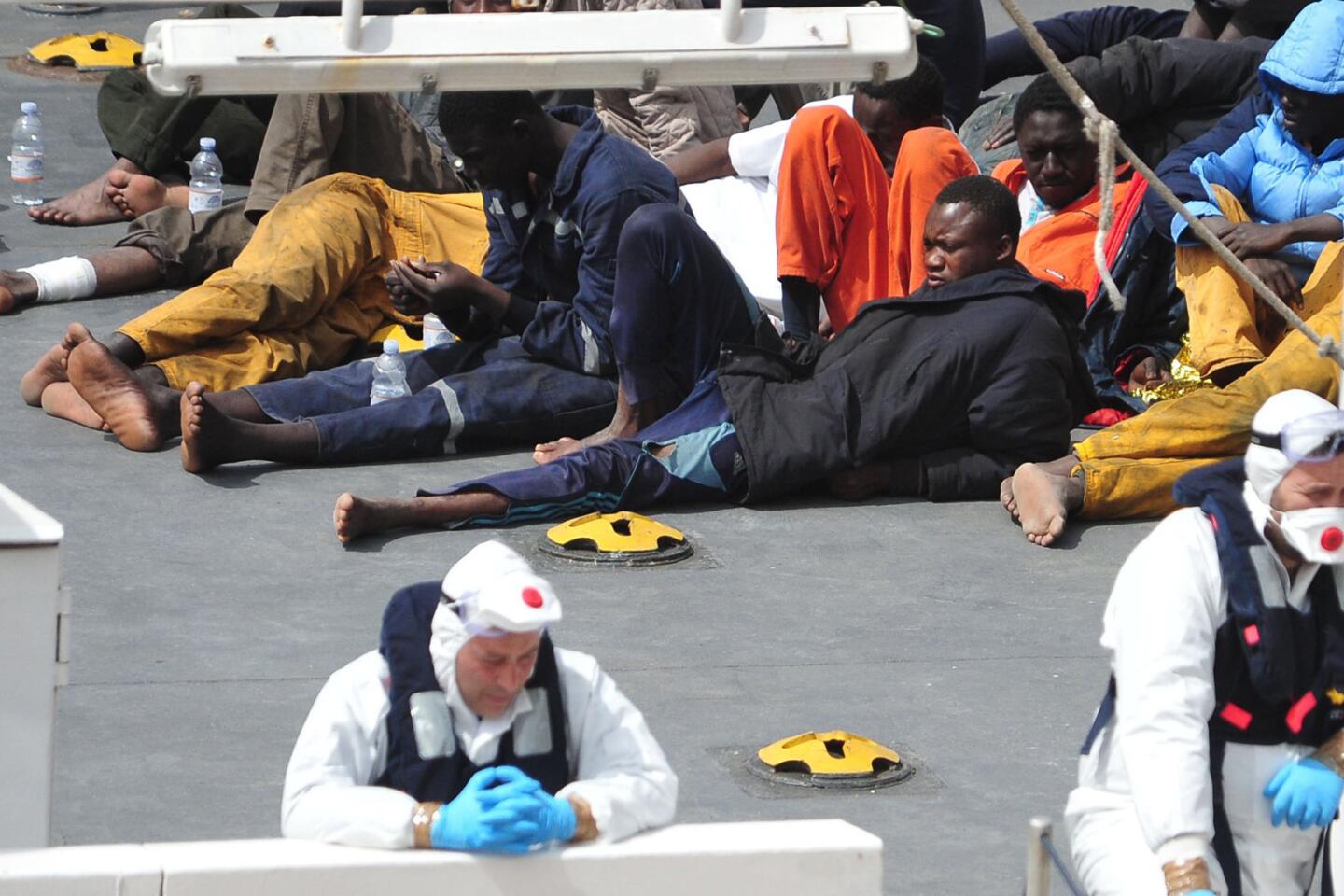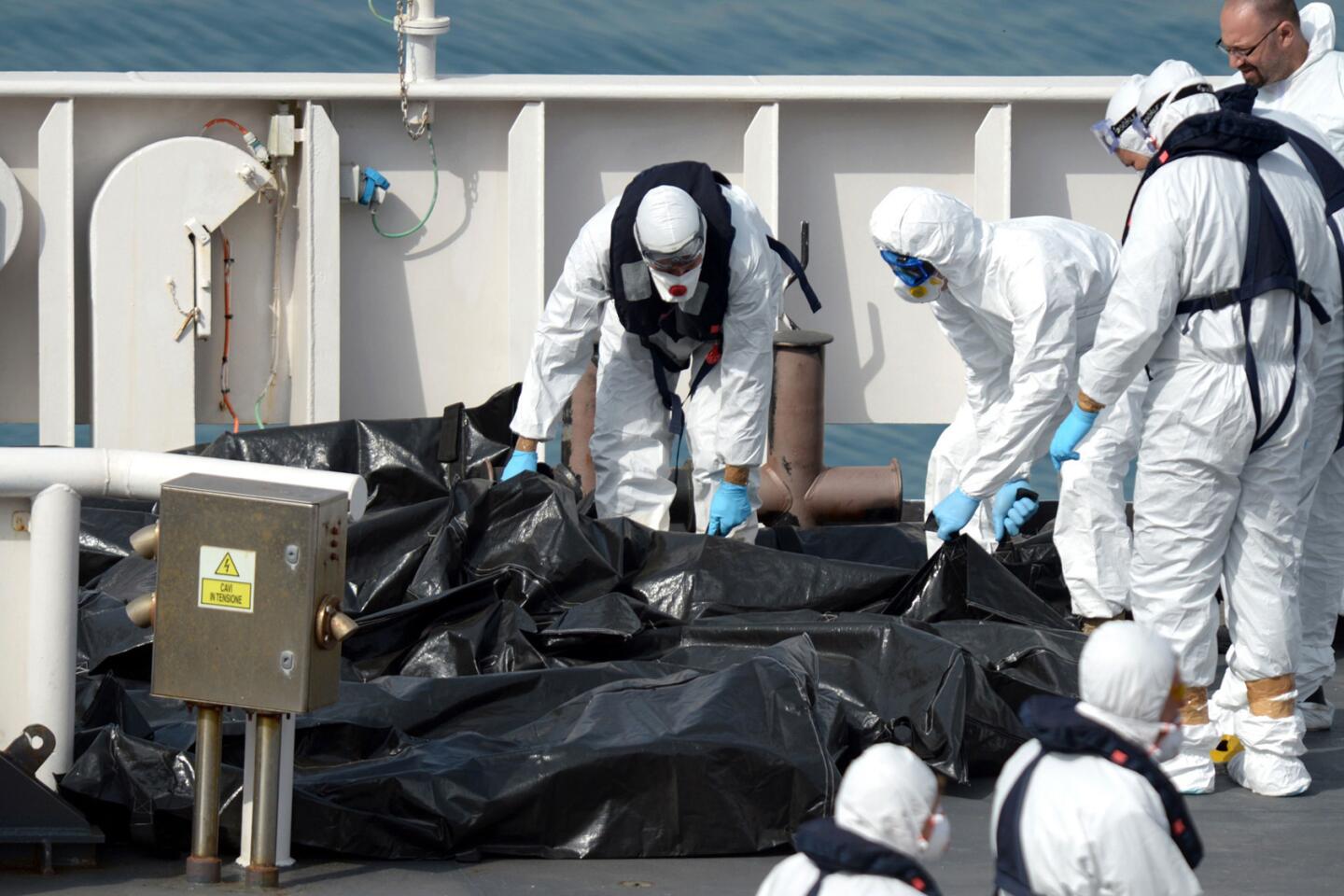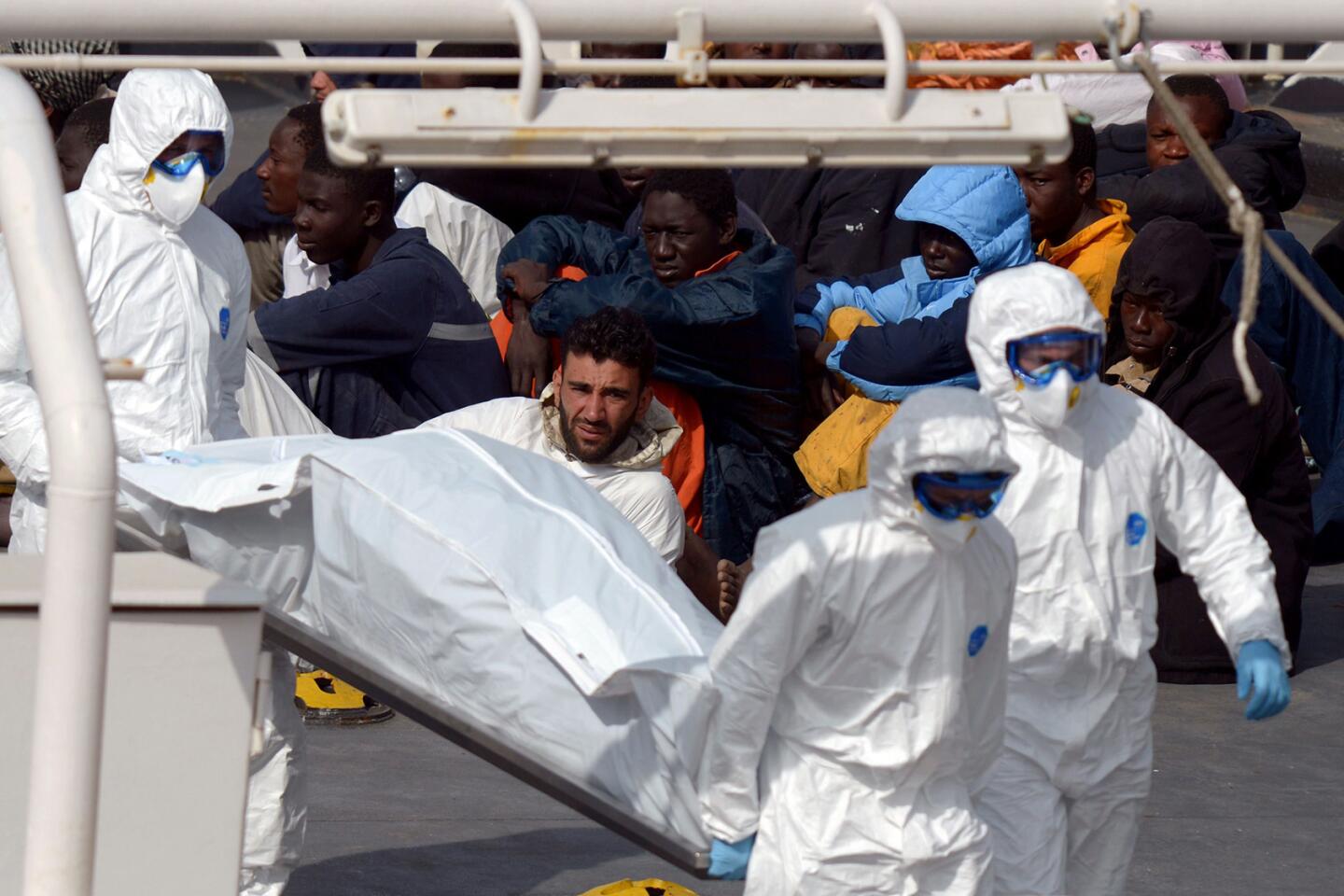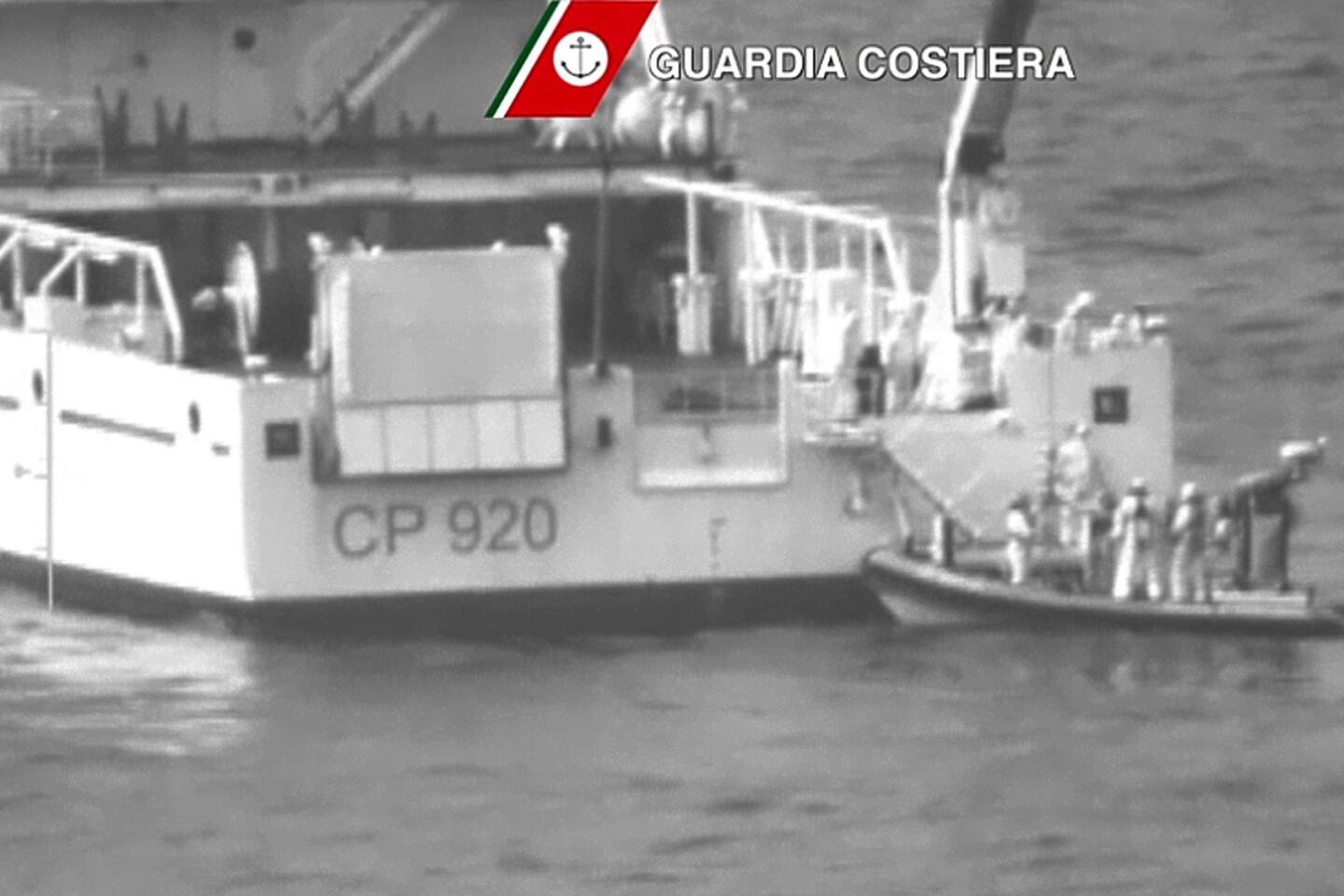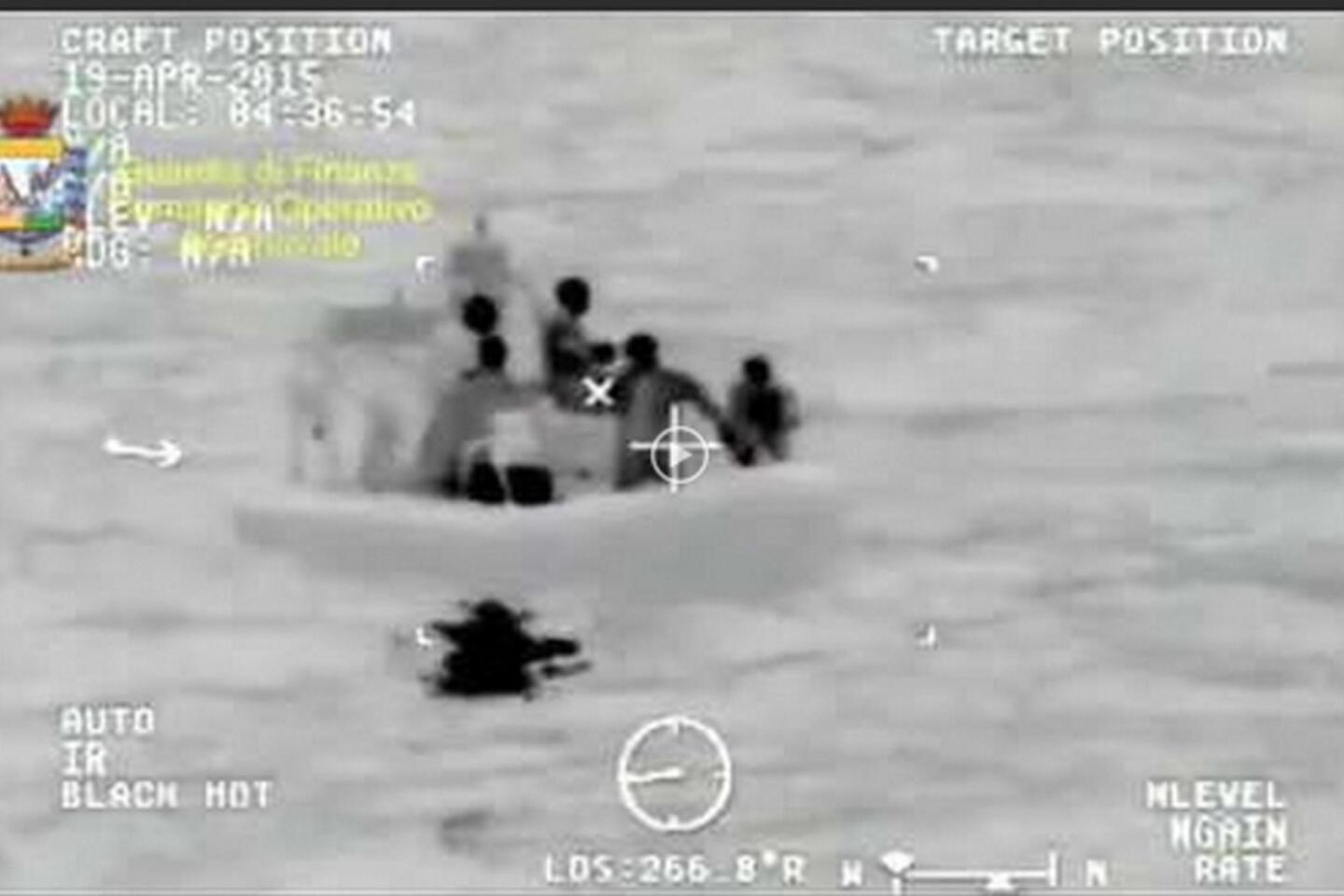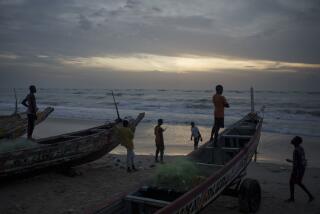For Africa migrants, hope of a decent life trumps the perils at sea
- Share via
Reporting from Johannesburg, South Africa — The first phone call came around 11 a.m. on a recent Sunday. A desperately frightened Eritrean refugee was on a sinking boat in the Mediterranean Sea, calling the only person he knew who might care: Sweden-based Eritrean journalist Meron Estefanos.
Not long afterward, she took another call from the sinking boat. And then another.
The calls kept coming until late that night.
At least 400 people, most of them Eritreans, are believed to have drowned when the boat sank April 12. A week later, in the worst migrant boat tragedy known, an estimated 850 migrants are believed to have drowned in another capsizing in the Mediterranean. They included about 350 Eritreans, as well as people from Syria, Somalia, Sierra Leone, Mali, Senegal, Gambia, Ivory Coast and Ethiopia, according to the Office of the U.N. High Commissioner for Refugees. Only 28 were saved.
The disasters have focused international attention on the surge in migrants attempting the risky voyage across the Mediterranean, typically from Libya to Italy, in the hope of finding new lives in Europe.
Those fleeing the civil war in Syria have accounted for the largest numbers in recent years, but the migrant flow has shifted somewhat in recent months, with larger numbers from Africa.
The U.N. refugee agency says nearly 9,000 Syrians have attempted the Mediterranean crossing this year, followed by 3,363 Eritreans, 2,908 Somalis and 2,371 Afghans, with others from Nigeria, Gambia, Senegal and Mali.
Among those arriving in Italy this year, the largest numbers were from Gambia, Senegal and Somalia, followed by Syria, Mali and Eritrea, according to the Italian Interior Ministry.
So why are people risking their lives to cross the Mediterranean in overloaded, unseaworthy boats, knowing that so many previous journeys have ended in tragedy?
War, crushing oppression or dire poverty drive people to desperate choices, according to analysts and human rights advocates. The alternative seems worse than risking death for the chance of a decent life.
Eritrea, a small, secretive country, has one of the worst human rights records in Africa. Somalia is racked by fighting, terrorist attacks and insecurity. Syria, of course, has been shattered by civil war, with large swaths controlled by the extremist group Islamic State. The conflict has driven more than 3 million people into exile.
“There’s no choice on whether they will come or not. They will come, because what’s forcing them is dictatorship or war,” said Ana Lopez Fontal of the European Council on Refugees and Exiles, an alliance of 87 organizations representing migrants and refugees. “People are often aware they could die. Sometimes they choose between almost certain death and the possibility of making it.”
Estefanos, the Eritrean journalist, works for Paris-based Radio Erena, which broadcasts independent news into Eritrea. The African nation has the world’s worst record on press censorship, worse than even North Korea, according to the Committee to Protect Journalists. Everyone in Eritrea knows her voice.
When desperate Eritrean migrants go to sea, they keep her phone number with them, in case things go wrong. When their relatives go missing at sea, she’s the one family members call.
Like many migrants, the Eritreans find their way to Libya, where the collapse of government authority has given smugglers and human traffickers the freedom to operate with impunity. Once there, the migrants have no choices, even when they discover that the boats are hopelessly unseaworthy.
“Once you are in Libya, you have no say in your life,” Estefanos said. “You just pay smugglers and your life is in their hands. You can’t say, ‘I don’t want to go tonight. It looks like bad weather. I don’t like the look of the boat.’”
Rights groups report beatings, abductions, extortion, torture and killings of migrants in Libya.
“It’s a really dreadful journey so I think it’s really a sign of desperation, particularly for Eritreans making that choice, because of the risk of being detained in Libya,” said Leslie Lefkow of Human Rights Watch. “There’s a level of desperation that’s been reached among many people who hoped that the situation in Eritrea would improve [but] are not seeing any improvement and are deciding that the only way they can do anything with their lives is to get out.”
Amnesty International spokesman Matteo de Bellis said refugees say smugglers not only lie about the quality of the boats but also are armed and ready to use violence.
“People complained that the boat was not adequate, particularly due to the high number of people put on board. However, when someone protested, smugglers forced them to get on board,” he said.
The International Organization for Migration said that as of Tuesday, 1,727 people are believed to have died this year attempting the dangerous voyage, 30 times more than during the same period last year. Crossings are typically lower in number in the European winter because the sea is more dangerous, so the number of migrants crossing from Libya is expected to increase sharply in coming months.
The main reasons Eritreans flee is the country’s open-ended national military conscription, from the age of 18 until around 50, with the almost entire adult population bound to serve in the military, being paid wages well below the cost of living.
“People are getting more and more desperate,” Estefanos said. “Everything keeps getting worse.
“The government has informants everywhere,” she said. “They have national service — we call it national slavery. When everyone is living on a national service wage of $10 or $12 a month and your rent is $50, it’s just unbearable.”
Feruz Tewelde of the London-based campaign group Stop Slavery in Eritrea said young people had lost hope, seeing their elders bound in a form of modern slavery.
“There’s absolutely no freedom,” Tewelde said. “The regime is not following basic human rights, it is not providing for its people.
“People are hungry. People who have spoken or criticized the government in any way are imprisoned. By the time people reach 15 or 16, they see nothing other than being in national service, or slavery.
“It’s become normal for young Eritrean people to try to flee,” Tewelde said.
Italy’s authorities continue to rescue migrants, but other European nations have held back to avoid encouraging migrants, a policy that advocates say has not led to fewer refugees, but has seen thousands of people die needlessly.
“It’s inhuman,” Estefanos said. “They think rescuing people will encourage more refugees to come. But it didn’t.
“They stopped the rescues, and more people still came,” she said. “The smugglers always find a way.”
Amnesty International’s De Bellis is among those calling for change. “We see that departures continue, at an even higher rate than last year; the only thing that is increasing is the number of people dying,” he said. “To address this humanitarian crisis, European leaders must immediately create a concerted, multi-country operation to save lives at sea.”
Families, waiting for a call to say their loved one arrived safely, frequently don’t realize the ship may have gone down until they have heard nothing for about five days. In the case of the latest disaster, that would be at the end of this week.
That’s when Estefanos’ phone will start ringing again.
Follow @RobynDixon_LAT for news from Africa
More to Read
Sign up for Essential California
The most important California stories and recommendations in your inbox every morning.
You may occasionally receive promotional content from the Los Angeles Times.
